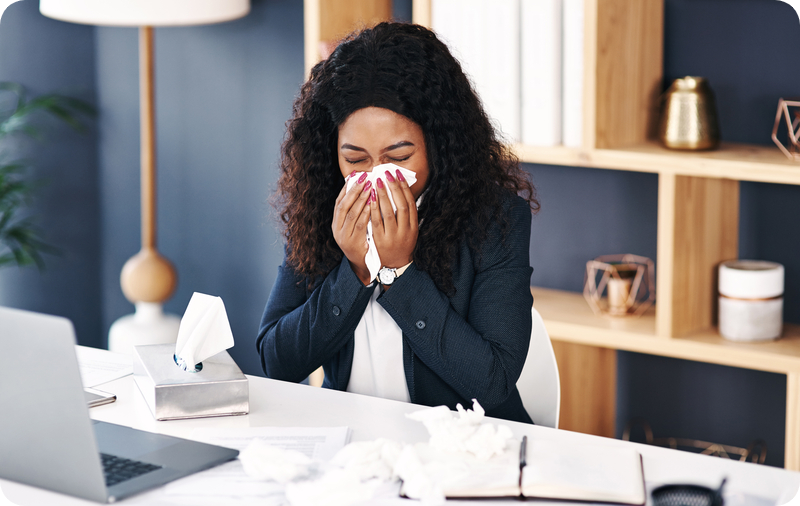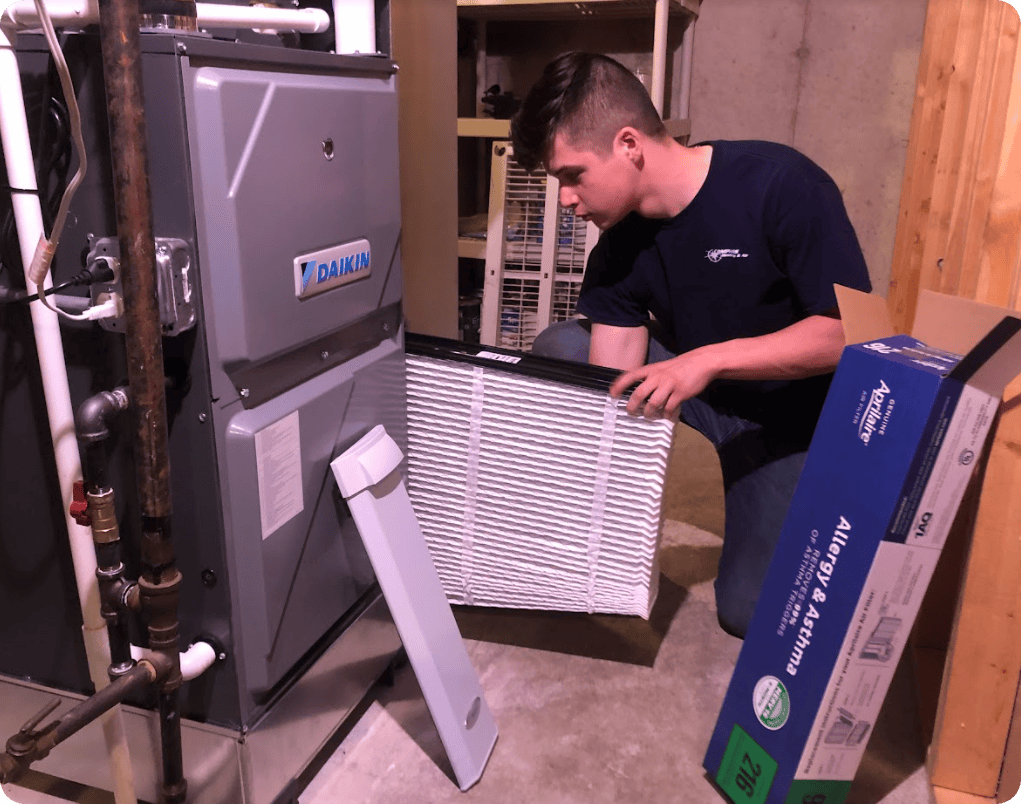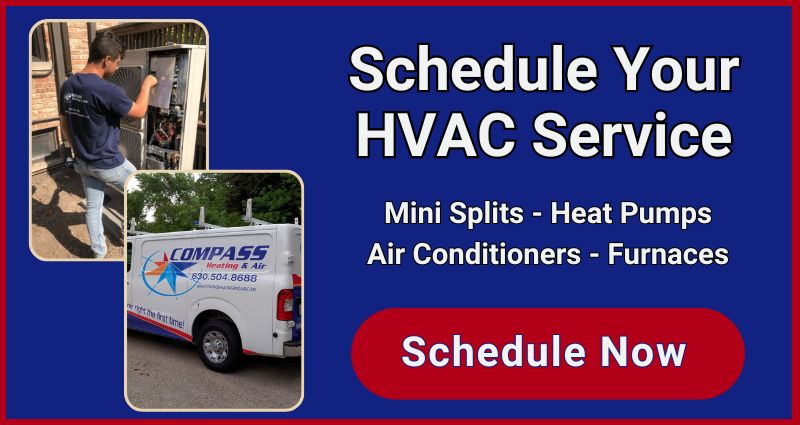4 Ways To Alleviate Fall Allergies Using Your HVAC System
 The leaves changing and the weather cooling off are a few of the nice things about the fall. For those who suffer from allergies, some of the fun seasonal changes are overshadowed by fall allergies. Ragweed, mold spores, and dust mites are common allergens that thrive during the fall season, causing sneezing, congestion, itchy eyes, and other unpleasant symptoms.
The leaves changing and the weather cooling off are a few of the nice things about the fall. For those who suffer from allergies, some of the fun seasonal changes are overshadowed by fall allergies. Ragweed, mold spores, and dust mites are common allergens that thrive during the fall season, causing sneezing, congestion, itchy eyes, and other unpleasant symptoms.
Using allergy medicine is helpful, but there are a few things you can do around your home that will help alleviate allergies. Improving your indoor air quality can play a significant role in alleviating allergy symptoms.
Cleaning your HVAC systems (heating, ventilation, and air conditioning) is a great way to battle against allergens. In this article, we’ll go over 4 HVAC tips that can help you clean the air in your home, and alleviate your fall allergies!
If you live in the Elgin, IL area, or the surrounding neighborhoods, give us a call for help with your HVAC system. We can make sure the air in your home is clean and ready for the fall!
How Your Indoor Air Quality Impacts Your Allergies
The quality of the air in your home has a direct impact on your allergies and breathing issues. Poor IAQ can exacerbate symptoms by allowing allergens like dust, pet dander, mold, and pollen to circulate freely within your home. When the air inside your home is not properly filtered or ventilated, these particles can build up, triggering allergic reactions in sensitive individuals.
If your HVAC system is taken care of and cleaned regularly, it’s going to help improve the quality of the air in your home as well. Obviously you are still going to have allergies, but these steps to cleaner air are going to help relieve some of these symptoms, and make your home a comfortable place to be.
Changing Your Air Filter
 One of the easiest ways to keep the air in your home clean is by changing the air filter in your HVAC system. Over time, air filters become clogged with dust, pollen, and other particles. This will prevent the air from flowing properly, and also make the air in your space dirtier. This is going to reduce the efficiency of your HVAC system, and potentially cause big problems.
One of the easiest ways to keep the air in your home clean is by changing the air filter in your HVAC system. Over time, air filters become clogged with dust, pollen, and other particles. This will prevent the air from flowing properly, and also make the air in your space dirtier. This is going to reduce the efficiency of your HVAC system, and potentially cause big problems.
We recommend that you change your air filters once every 1-3 months, or even more frequently during peak allergy seasons. Opt for a high-efficiency filter with a MERV rating of 8 or higher to capture smaller particles such as pet dander, mold spores, and pollen. If you have severe allergies, consider investing in a HEPA (High-Efficiency Particulate Air) filter, which can capture up to 99.97% of airborne particles. If you have too high a rating though, it can prevent air flow. We recommend anything in between 8-13 MERV ratings for standard homes.
Scheduling HVAC Service
You should have your HVAC system serviced at least once a year, preferably before the season it’s being used in. For the fall, we recommend having your heating system looked at before the winter. This is going to ensure your system is running safely and efficiently.
As for the indoor air quality, during a maintenance visit, a technician will inspect and clean various components of your system, such as the coils, blower motor, and ductwork. By cleaning your system, changing your filter, and making sure that there are no leaks or malfunctions, it’s going to improve the quality of the air that flows throughout your home.
Installing An Air Purification System
Another great way of actively cleaning the air in your home is by installing a purifier. Air purifiers work in conjunction with your HVAC system to remove additional pollutants from the air, including bacteria, viruses, and volatile organic compounds (VOCs). Air purifiers plug right into your ductwork, and work 24/7 without you having to do a thing.
There are different types of air purifiers, from UV lights to systems that release ions into the air. Our experts can help you select the best air purification system for your home. The point is, while filters and HVAC service keep the air passively clean, these systems are more active cleaning the airborne particles and keeping the air fresh. This is also great for homes with bad odors, like pet dander or smoke.
Installing Humidity Control
Maintaining the right humidity levels in your home is another important aspect of controlling allergies that people may not think of. High humidity can encourage the growth of mold and dust mites, both of which are common allergy triggers. On the other hand, air that is too dry can irritate your nasal passages and make it hard to breathe, even causing nose bleeds and dry skin.
Installing a whole-home humidifier or dehumidifier can help you keep indoor humidity at the ideal level—typically between 30% and 50% relative humidity. Dehumidifiers are perfect for the fall when there’s still a bit of humidity in the air, even if the heat has dissipated a bit. By controlling humidity, you create an environment that is less hospitable to allergens, mold, dust, etc. This makes it easier to breathe and reduces the frequency of allergy flare-ups.
Improving The Indoor Air Quality Of Your Elgin, IL Home
If you are looking to alleviate the allergens in your home, and keep the air clean and healthy, the experts at Compass Heating and Air can help! We have been servicing HVAC systems in the area for over a decade, and know exactly how to keep the air in your home clean and healthy!
Give us a call at (630) 504-8688, or contact us online. Our experts will be out to take a look at your home, and let you know exactly what you can do to make the air cleaner!



